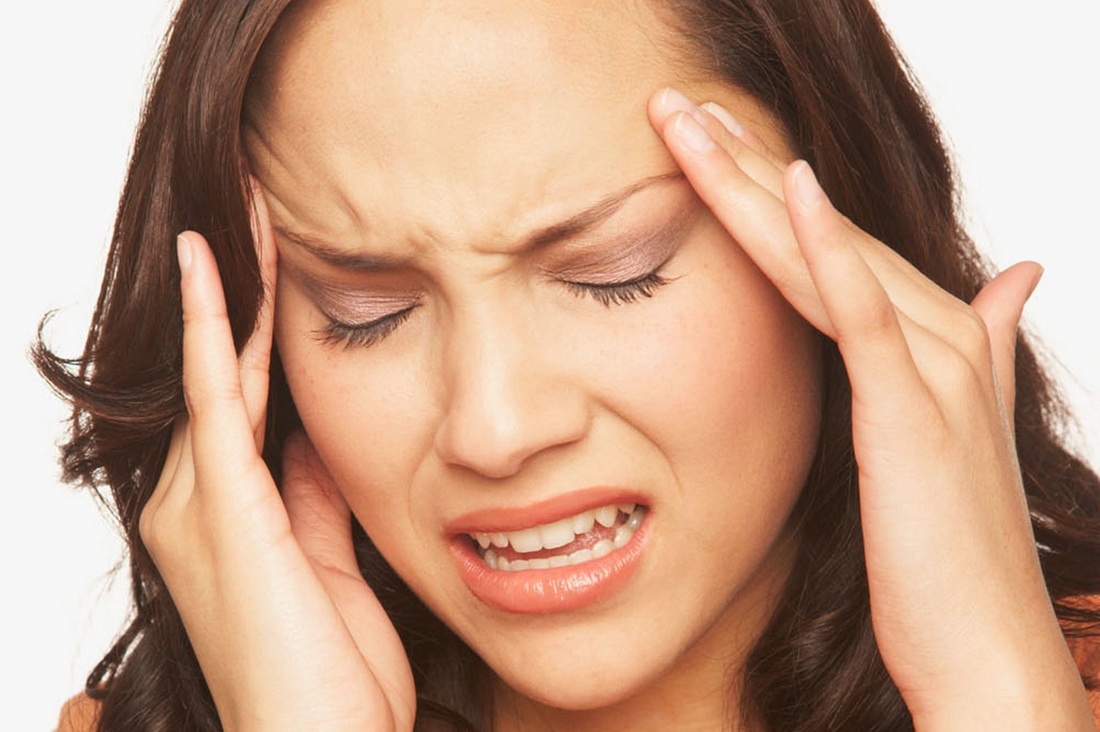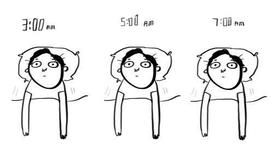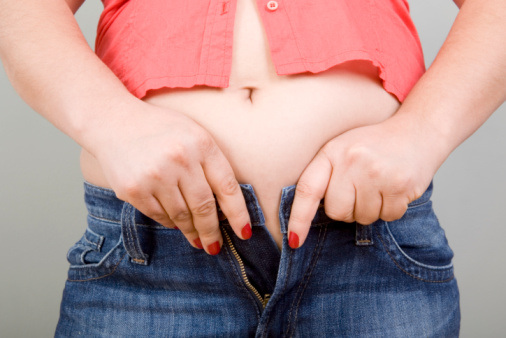I’m a fixer. Maybe not a vehicle fixer, or a “handiman” fixer, but a fixer. A problem solver. Recently, I’ve had a number of friends disclose to me their discomforting ailments. To my surprise, they needed a doctor’s intervention. I was surprised because most issues people experience can be solved with a few simple solutions. An example could be awful flatulence; have you had dairy recently? There, fixed.
Below, you’ll find a load of different “problems” and possible reasons why you have that problem. Of course, as you’d expect, I’ve provided a solution, too.
1. Headaches
I have headaches all the time. At least once during the day I have an unsettling knock in my head. Besides the little monkey banging around up there, the main reason I have the twinges come down to my caffeine intake.
Your body is a science experiment. If for 3-4 days in a row you’ve had 80-100mg of caffeine at 9 a.m., on that fifth day you better be sucking down your legal cocaine or get ready for withdrawal headaches. You’ll also become an insufferable prick, and nobody wants that.
Other considerations could be a rapid change in daily sugar intake. Most people don’t realize just how much sugar they’re ingesting in their everyday lives. Having a high-sugar diet keeps your insulin levels through the roof. Think of insulin as a junkie inside your body; a junkie can either clean the house spotless or hit rock bottom and dirty the house. Normal insulin levels are your active junkie; the kind of junkie you’d want to scrub the floors. However, like any junkie, they can get too high for too long and eventually you’ve got 3 weeks of fast-food and toilet paper piled in a corner. Too much sugar is the slob-junkie; just like the slob junkie, get them off the drugs and you’re looking at a crazed animal.
Don’t be that crazed animal. Keep your sugar intake relatively even every day. If you choose to diet (and pick the low-carb approach), decrease your carbohydrate intake slowly. Just like your junkie, getting off too quickly makes withdrawal symptoms very difficult on your body.
Other headache inducers can be needing proper glasses, grinding your teeth in your sleep (I wake the neighbors sometimes), inadequate hydration, high blood-pressure, stress, bunched up muscles in the neck (top of the trapezius) and/or upper/middle back (middle/lower trapezius), poor sleep habits, including too much sleep, not enough sleep, or not enough REM sleep, and not breathing properly when you’re exercising.
Solution: Normal sugar intake, breathe properly when you exercise, stretch adequately, hydrate properly, and don’t do drugs (caffeine). But like any drug, if you’re going to do it (caffeine), be aware of what you’re putting in. Get good sleep. If you must, dim the lights and stop with the electronics at least an hour before bed.
2. “Bloatedness”
Like Shakespeare, I make up words. You can call me “Fitspeare” if you will.
I hear this problem from women more-so than men. The only men I hear it from are prima donna bodybuilding enthusiasts, and if I must admit I’m probably in this category. However, we really know what’s going on in our guts.
Speaking of knowing our guts, here’s a couple things to know about foods and what they’ll do in your body.
Dairy in adults is an awful idea. Lactose is a sugar in dairy products which gets broken down by lactase in our bodies. Simply put from an evolutionary standpoint, very young children have loads of lactase to help digest loads of lactose because most dairy sources (in relation to the average natural food) are calorie dense. Calorie density=growth. Once you’re a young adult, you begin producing less lactase. So you may not be “lactose intolerant,” but you will have a more inefficient time digesting dairy than other food sources. However, most adults have some form of lactose intolerance. It may not be harsh enough to warrant medication or a doctor’s visit, but it is enough to make you bloat (and blame things on the dog).
High-fiber foods and loads of water can be great for you. Your body will be on a schedule. You know, regulated. On time. Punctual. Prompt. Reliable. (I could do this all day.) However, be aware that the combination of high-fiber and loads of water may cause gastric discomfort.
Other issues could be sodium intake. Too much sodium and you’ll have lots of fluid retention. This adds to the bloat. If you had a soda, well, you’re adding both the above issue and below issue. If you haven’t figured it out yet, soda is the devil.
Solution: Avoid dairy. Assess your tolerance to high-fiber foods. If you had pizza two days in a row, no, you’re not gluten-intolerant. Please lord stop thinking you’re gluten intolerant. I’ll say it again: 1% of people have Celiac Disease. If you’ve cleaned up your diet and still believe you’re the 1%, please seek a medical professional.
3. Diarrhea
It happens to the best of us.
As uncomfortable as it is, there are many possible scenarios for why this awful thing happens to us. Here’s a ridiculous list:
Stress, too much sodium, too much caffeine, dehydration, lactose intolerance, not enough solid food, not enough fiber, medication, eating undercooked food, sickness, contaminated water or food, artificial sweeteners, diabetes, IBS, etc. It’s exhausting, really.
Solution: dietary control. If you’re still experiencing this, are you sick? Are you on medication? Drinking enough water? Is your caffeine intake high like mine? Frequent diarrhea is not okay. If you're still suffering from it after a day or two, really assess what's going on (medication side effects) or go see a doctor.
4. Frequent Exhaustion
This one’s a little tricky. Frequent exhaustion would be extremely difficult for a medical professional to assess, so I’m not near qualified to give you all the answers. I’ll give you some ideas and perhaps you can apply them to your own habits.
If you’re not getting enough REM sleep, you could feel exhausted a lot. Many ways to have issues with REM sleep could be this list: infrequent sleeping patterns (which is hilarious because that can be the cause of not getting enough REM sleep, or come from not having enough REM sleep. Go figure.), caffeine before bed, stress, food reactions with medications, medications, food before bed when you’re not used to it, electronics’ influence on your brain waves (trippy, right?), frequently pulling yourself out of REM sleep (alarm clocks), or waking up frequently in the night.
Other things to consider are how often and how hard you’re exercising. It’s not unheard of for people to strive for some fitness goal and over-train trying to get there. There are many skeptics out there about “over-training,” who believe enough sleep and food can keep you from it. However, over-training to the average individual is a real thing. Too much exercise is too much stress; too much stress on the body will wear you down. If you continue training this way, you’ll decondition instead of get in shape. You'll get fat, too. You’ll also open yourself to injury.
Also, if you’re drinking a lot of alcohol, you’re bringing this on yourself. That should be a no-brainer.
Solution: go to sleep at the same time every day. No electronic usage starting an hour before bed. Be on a consistent eating schedule. Don’t be hungry before bed. If you’re having trouble sleeping, having a light carbohydrate source before bed may help you sleep. If you must “use” something to go to sleep, try taking a low dose of melatonin. ZMA may help as well. Again, I’m not a medical professional, so if you’re at the point where you need to “use” something to go to bed, you better be seeing a doctor who tells you that. Don’t self-medicate.
If you hadn’t noticed, there’s usually a simple fix to these problems. The simplest way to regulate everything on your body is to:
Until next time,
"Stay strong, stay motivated, and stay hungry."
Below, you’ll find a load of different “problems” and possible reasons why you have that problem. Of course, as you’d expect, I’ve provided a solution, too.
1. Headaches
I have headaches all the time. At least once during the day I have an unsettling knock in my head. Besides the little monkey banging around up there, the main reason I have the twinges come down to my caffeine intake.
Your body is a science experiment. If for 3-4 days in a row you’ve had 80-100mg of caffeine at 9 a.m., on that fifth day you better be sucking down your legal cocaine or get ready for withdrawal headaches. You’ll also become an insufferable prick, and nobody wants that.
Other considerations could be a rapid change in daily sugar intake. Most people don’t realize just how much sugar they’re ingesting in their everyday lives. Having a high-sugar diet keeps your insulin levels through the roof. Think of insulin as a junkie inside your body; a junkie can either clean the house spotless or hit rock bottom and dirty the house. Normal insulin levels are your active junkie; the kind of junkie you’d want to scrub the floors. However, like any junkie, they can get too high for too long and eventually you’ve got 3 weeks of fast-food and toilet paper piled in a corner. Too much sugar is the slob-junkie; just like the slob junkie, get them off the drugs and you’re looking at a crazed animal.
Don’t be that crazed animal. Keep your sugar intake relatively even every day. If you choose to diet (and pick the low-carb approach), decrease your carbohydrate intake slowly. Just like your junkie, getting off too quickly makes withdrawal symptoms very difficult on your body.
Other headache inducers can be needing proper glasses, grinding your teeth in your sleep (I wake the neighbors sometimes), inadequate hydration, high blood-pressure, stress, bunched up muscles in the neck (top of the trapezius) and/or upper/middle back (middle/lower trapezius), poor sleep habits, including too much sleep, not enough sleep, or not enough REM sleep, and not breathing properly when you’re exercising.
Solution: Normal sugar intake, breathe properly when you exercise, stretch adequately, hydrate properly, and don’t do drugs (caffeine). But like any drug, if you’re going to do it (caffeine), be aware of what you’re putting in. Get good sleep. If you must, dim the lights and stop with the electronics at least an hour before bed.
2. “Bloatedness”
Like Shakespeare, I make up words. You can call me “Fitspeare” if you will.
I hear this problem from women more-so than men. The only men I hear it from are prima donna bodybuilding enthusiasts, and if I must admit I’m probably in this category. However, we really know what’s going on in our guts.
Speaking of knowing our guts, here’s a couple things to know about foods and what they’ll do in your body.
Dairy in adults is an awful idea. Lactose is a sugar in dairy products which gets broken down by lactase in our bodies. Simply put from an evolutionary standpoint, very young children have loads of lactase to help digest loads of lactose because most dairy sources (in relation to the average natural food) are calorie dense. Calorie density=growth. Once you’re a young adult, you begin producing less lactase. So you may not be “lactose intolerant,” but you will have a more inefficient time digesting dairy than other food sources. However, most adults have some form of lactose intolerance. It may not be harsh enough to warrant medication or a doctor’s visit, but it is enough to make you bloat (and blame things on the dog).
High-fiber foods and loads of water can be great for you. Your body will be on a schedule. You know, regulated. On time. Punctual. Prompt. Reliable. (I could do this all day.) However, be aware that the combination of high-fiber and loads of water may cause gastric discomfort.
Other issues could be sodium intake. Too much sodium and you’ll have lots of fluid retention. This adds to the bloat. If you had a soda, well, you’re adding both the above issue and below issue. If you haven’t figured it out yet, soda is the devil.
Solution: Avoid dairy. Assess your tolerance to high-fiber foods. If you had pizza two days in a row, no, you’re not gluten-intolerant. Please lord stop thinking you’re gluten intolerant. I’ll say it again: 1% of people have Celiac Disease. If you’ve cleaned up your diet and still believe you’re the 1%, please seek a medical professional.
3. Diarrhea
It happens to the best of us.
As uncomfortable as it is, there are many possible scenarios for why this awful thing happens to us. Here’s a ridiculous list:
Stress, too much sodium, too much caffeine, dehydration, lactose intolerance, not enough solid food, not enough fiber, medication, eating undercooked food, sickness, contaminated water or food, artificial sweeteners, diabetes, IBS, etc. It’s exhausting, really.
Solution: dietary control. If you’re still experiencing this, are you sick? Are you on medication? Drinking enough water? Is your caffeine intake high like mine? Frequent diarrhea is not okay. If you're still suffering from it after a day or two, really assess what's going on (medication side effects) or go see a doctor.
4. Frequent Exhaustion
This one’s a little tricky. Frequent exhaustion would be extremely difficult for a medical professional to assess, so I’m not near qualified to give you all the answers. I’ll give you some ideas and perhaps you can apply them to your own habits.
If you’re not getting enough REM sleep, you could feel exhausted a lot. Many ways to have issues with REM sleep could be this list: infrequent sleeping patterns (which is hilarious because that can be the cause of not getting enough REM sleep, or come from not having enough REM sleep. Go figure.), caffeine before bed, stress, food reactions with medications, medications, food before bed when you’re not used to it, electronics’ influence on your brain waves (trippy, right?), frequently pulling yourself out of REM sleep (alarm clocks), or waking up frequently in the night.
Other things to consider are how often and how hard you’re exercising. It’s not unheard of for people to strive for some fitness goal and over-train trying to get there. There are many skeptics out there about “over-training,” who believe enough sleep and food can keep you from it. However, over-training to the average individual is a real thing. Too much exercise is too much stress; too much stress on the body will wear you down. If you continue training this way, you’ll decondition instead of get in shape. You'll get fat, too. You’ll also open yourself to injury.
Also, if you’re drinking a lot of alcohol, you’re bringing this on yourself. That should be a no-brainer.
Solution: go to sleep at the same time every day. No electronic usage starting an hour before bed. Be on a consistent eating schedule. Don’t be hungry before bed. If you’re having trouble sleeping, having a light carbohydrate source before bed may help you sleep. If you must “use” something to go to sleep, try taking a low dose of melatonin. ZMA may help as well. Again, I’m not a medical professional, so if you’re at the point where you need to “use” something to go to bed, you better be seeing a doctor who tells you that. Don’t self-medicate.
If you hadn’t noticed, there’s usually a simple fix to these problems. The simplest way to regulate everything on your body is to:
- Clean up your diet. Not too high nor too low in the carbohydrate department. No excess sugar. Stop with the dairy. Have good fiber intake. Have good water intake.
- Don’t exercise outside the realm of possibilities. Assess your fitness level and go from there. Your body has no time for your ego.
- If you’re stressing, avoid the problem of your stress if it can be avoided; don’t take your work home with you, don’t let that crap relationship keep going, don’t let bad friendships keep you down. Good people and things happen to those that relinquish negativity.
- Sleep. If you’re an insomniac go see a doctor about it. Don’t be that person that laughs things off with “I don’t sleep.” That’s nonsense. You’re not a machine, you’re a human. How ridiculous is sleep? Extremely. Hey, let’s just operate for an extended number of hours just to lie down and shut off and make weird noises while unconscious. It’s totally bonkers, but obviously we need to do it. Go sleep.
- If you’ve accomplished all of these and are still suffering discomfort in any range, go seek professional help! Explain in detail the symptoms, what you’ve done to alleviate symptoms, and be open to suggestions. Doctors can’t treat you like a science experiment with no data.
- Listen to your body.
Until next time,
"Stay strong, stay motivated, and stay hungry."




 RSS Feed
RSS Feed
